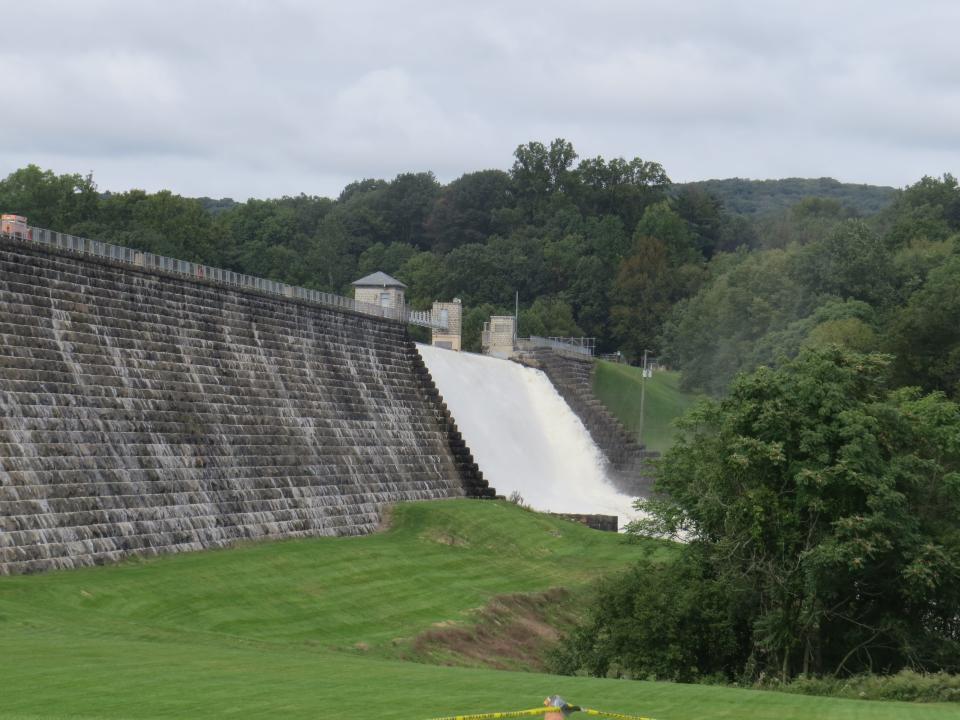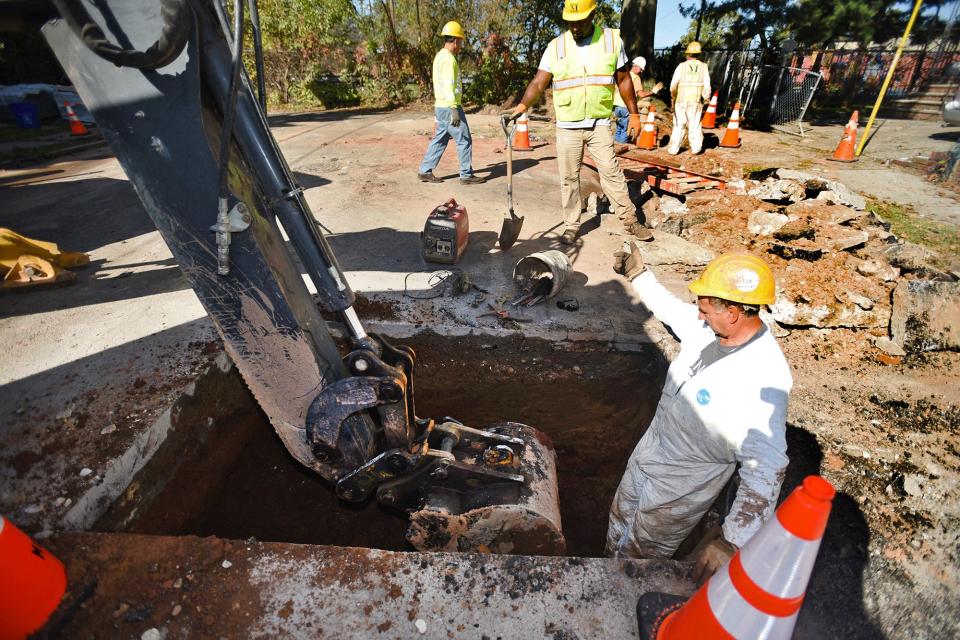Parsippany taps residents to inspect, self-report lead pipes in their homes
Parsippany is one of several towns directing residents to inspect and report possible lead pipes in their water-service lines following a new state law to eliminate the toxic metal from its water supply by 2031.
"Your participation is needed," reads a survey recently mailed to all Parsippany residents. The four-page survey includes detailed steps and illustrations for residents to follow to inspect their lines for lead or galvanized steel that may contain lead.

Lead can be harmful to humans even at small levels, potentially causing cardiovascular, kidney and reproductive issues, according to the Environmental Protection Agency. The risks are magnified for pregnant women and children.
Bathing in lead-tainted water is less of a risk because it cannot be absorbed by skin. But drinking water accounts for about 20% of human lead intake, EPA studies show.
Water-utility providers were required to send notification via certified mail by Feb. 22 as part of a bill package signed into law last year by Gov. Phil Murphy that requires water service lines with lead to be replaced by 2031.
Parsippany has no lead lines, according to Assistant Water Superintendent Sean Andres.
"The only place we've seen galvanized lines is in Mt. Tabor," he said, referring to the historic neighborhood that began as a Methodist camp started in 1869.
The survey form, which also can be filled out online, is optional: "There's no penalty for not filling out the survey," he said.
But Andres is urging all residents to respond to complete an accurate township inventory report. To date, the state has identified186,830 lead lines throughout New Jersey and another 1,084,258 "service lines of unknown materials" that will need to be replaced.

A service line is a portion of pipe that connects a water main to a building inlet. Ownership of the service line varies by water system but is frequently split between the water system and the property owner.
A service line may be owned by a public water system, a property owner or both. The national average cost for replacing a service line is $3,581, according to a HomeServe estimate.
Lead crisis in Flint, Newark
The issue of eliminating toxic lead in drinking water gained momentum after lead poisoning from the water system was blamed for a dozen deaths and rising lead levels among children in Flint, Michigan, in 2014.
More headlines were seen in 2019 after water tests on Newark’s water system showed high levels of lead that resulted in the city’s pipe-replacement program.
The New Jersey Department of Environmental Protection was unable to produce a list of other towns distributing the survey.
Morris No. 1: Here are the healthiest (and least healthy) counties in New Jersey
Jefferson Twp.: Prosecutors seek to bar findings of 'diminished capacity' at former Newark cop's murder trial
William Westhoven is a local reporter for DailyRecord.com. For unlimited access to the most important news from your local community, please subscribe or activate your digital account today.
Email: wwesthoven@dailyrecord.com Twitter: @wwesthoven
This article originally appeared on Morristown Daily Record: NJ drinking water: Parsippany residents to inspect lead pipes in homes

